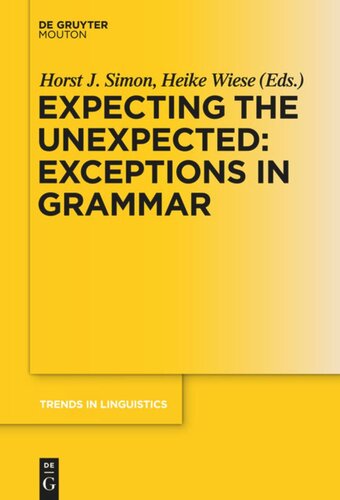
Expecting the Unexpected: Exceptions in Grammar PDF
460 Pages·2011·3.737 MB·English
Most books are stored in the elastic cloud where traffic is expensive. For this reason, we have a limit on daily download.
Preview Expecting the Unexpected: Exceptions in Grammar
Description:
Every linguistic theory has to come to grips with a fundamental property of human language: the existence of exceptions, i.e. phenomena that do not follow the standard patterns one observes otherwise. The contributions to this volume discuss and exemplify a variety of approaches to exceptionality within different formal and non-formal frameworks.Topics include criteria for exceptionality, the diachronic rise of exceptions, the relevance of different grammatical subsystems and their interaction in the explanation of exceptions, and the crucial characteristics of grammatical models that can accommodate exceptions. A special feature of the book is that the articles are accompanied by peer-commentaries and responses thereupon, thus opening up the papers to further discussion.
See more
The list of books you might like
Most books are stored in the elastic cloud where traffic is expensive. For this reason, we have a limit on daily download.
